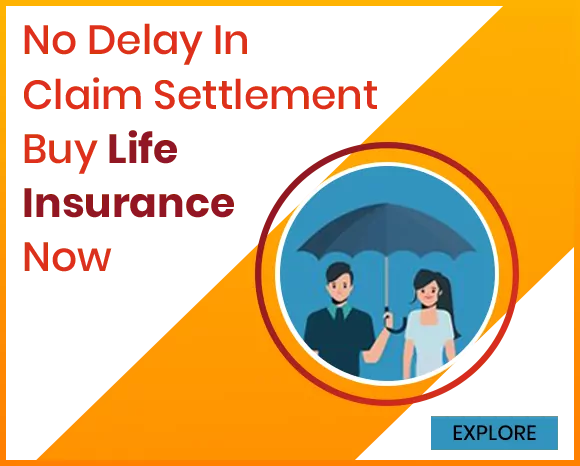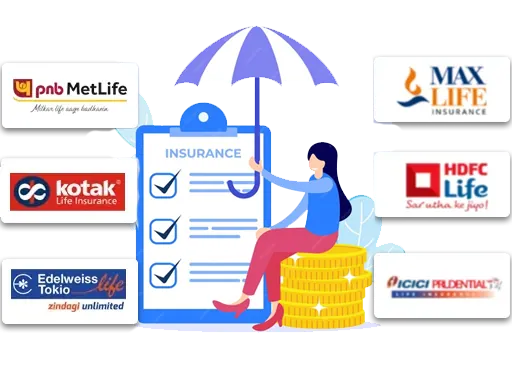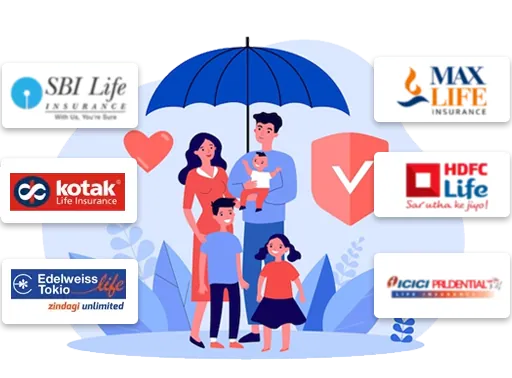Family Term Insurance Plans in India 2025
Term Plan for family is a kind of insurance that provides financial support to the policyholder’s family after his/her sudden demise. It acts as an income replacement for the family, that helps them with education expenses, debt repayment, mortgage payment or fulfilling other financial obligations even in the absence of the breadwinner.
What is Term Insurance For Family?
Family term insurance can be used to cover various financial needs, such as mortgage payments, education expenses, and living expenses. The policyholder typically pays a premium for the coverage, and the death benefit amount is determined at the time the policy is purchased. Family term insurance also offers the option of ‘Life Stage Benefit’, which adds flexibility to your plan and accommodates the growing needs of the policyholder. This unique feature enables your insurance coverage by increasing the sum assured at crucial stages of your life such as marriage or birth of a child.
How Does a Family Term Insurance Plan Work?
Term insurance plan for family works by providing life insurance coverage to the policyholder, as well as their spouse and/or children. The coverage lasts for a specified term, which is usually between 10 and 30 years, and pays out a death benefit in the event of the policyholder’s death during the term.
- Enrollment: The policyholder applies for coverage and chooses the amount of coverage they want for themselves and their family. They also specify the term for which they want coverage, the premium amount they are willing to pay, and the beneficiaries who will receive the death benefit.
- Premium payment: The policyholder pays premiums on a regular basis, typically monthly or annually, to keep the coverage in force.
- Coverage activation: Once the policyholder has enrolled and started paying premiums, the coverage is activated and the policyholder, spouse, and children are insured under the policy.
- Death benefit payout: If the policyholder dies during the term of the policy, the death benefit is paid out to the designated beneficiaries. Funeral fees, unpaid debts, and living expenditures can all be paid for with the death benefit.
It’s important to note that family term insurance policies typically do not have a savings component and do not accumulate cash value over time. The premium amount is typically lower than other types of life insurance policies, but the coverage is limited to the term of the policy and does not provide any benefits if the policyholder does not die during the term.
Features of Term Plan for a Family
Here are some of the key features of family term insurance:
- Death Benefit: The death benefit is the amount of money that the policyholder’s beneficiaries will receive in the event of the policyholder’s death.
- Term Length: Family term insurance policies typically have a set term length, which is the length of time that the policy will provide coverage. This term can range from 5 years to 30 years or more.
- Premiums: Premiums are the amount of money that the policyholder pays for the insurance coverage. Premiums for family term insurance policies are typically lower than other types of life insurance policies, but they can increase over time.
- Renewability: Some family term insurance policies are renewable, which means that the policyholder can renew their coverage at the end of the term without having to undergo a medical examination.
- Conversion Option: Some family term insurance policies come with a conversion option, which allows the policyholder to convert their term insurance coverage into a permanent life insurance policy, such as whole life insurance, without having to go through a checkup.
- Accelerated Death Benefit: Some family term insurance policies come with an accelerated death benefit, which allows the policyholder to receive a portion of their death benefit in advance if they are diagnosed with a terminal illness.
- Rider Options: Family term insurance policies may offer additional coverage options, known as riders, that can be added to the policy for an additional premium. Some common riders include accidental death and dismemberment coverage, waiver of premium coverage, and critical illness coverage.
Advantages of Term Insurance For Family
Family term life insurance provides a number of advantages, including:
- Affordable Coverage: Term life insurance is generally more affordable than permanent life insurance policies, making it an attractive option for families on a budget.
- Death Benefit: The primary purpose of term life insurance is to provide a financial safety net for loved ones in the event of the policyholder’s death. The death benefit can be used to cover end-of-life expenses, pay off debts, or provide income replacement.
- Flexibility: Term life insurance policies typically offer a range of coverage options and terms, allowing policyholders to select a policy that meets their specific needs.
- Coverage for a Specified Period: Family term life insurance provides coverage for a specific period of time, typically ranging from 10 to 30 years. This allows policyholders to choose a term that aligns with their financial goals and needs.
- Simplicity: Term life insurance is a straightforward and simple type of life insurance that is easy to understand and purchase.
- Estate Planning: Family term life insurance can also be used as part of an overall estate planning strategy to provide tax-free death benefits to beneficiaries.
Disadvantages of Term Insurance Plan for Family
While family term life insurance offers many advantages, it also has some disadvantages, including:
- Limited Coverage: The coverage provided by a term life insurance policy is limited to the term of the policy, and the policyholder may not be covered if they outlive the term.
- No Cash Value: Unlike permanent life insurance policies, term life insurance does not accumulate cash value and is not an investment.
- Renewal Costs: At the end of the term, the policyholder may have to renew the policy at a higher cost, especially if they have aged or have developed a health condition.
- Coverage Terminates with the End of the Term: If the policyholder does not renew the policy at the end of the term, the coverage will terminate and the policyholder will no longer be covered.
- No Living Benefits: Unlike permanent life insurance policies, term life insurance does not provide any living benefits, such as the ability to access the death benefit while still alive.
- No Long-Term Savings: Term life insurance does not provide a long-term savings option, as the death benefit is paid out only if the policyholder dies within the term of the policy.
- No Estate Tax Benefits: Unlike permanent life insurance policies, term life insurance does not provide any estate tax benefits, as the death benefit is paid out only if the policyholder dies within the term of the policy.
How can You buy Term Insurance for your Family from PolicyX?
PolicyX is an IRDAI-approved insurance comparison portal that can easily help you compare the term insurance policies before you opt to buy them. Below we have provided the steps to follow in order to purchase any kind of insurance plan as per your needs and requirements.
You can buy the term insurance plan from our official website Policy.com. Visit the website, get a quote for the plans you wish to buy, and compare the plans and rates. Click on the ‘Buy’ option of the plan and complete the rest procedure.
Or
Call our customer executive on our toll-free number - 1800-4200-269, to get the quotes online. The executive will guide you through the policy norms and help you with the documentation and payment process.
*Please be aware of the fraud calls.
In a Nutshell
If you are considering purchasing family term insurance, it is important to carefully evaluate your insurance needs and consider factors such as your financial situation, the size of your family, and the length of time you need coverage. It is also important to shop around for the best policy and premium rate, and to consider working with an insurance agent or financial advisor to help you make an informed decision.
















 Reviewed By: Anchita Bhattacharyya
Reviewed By: Anchita Bhattacharyya

4493-1741698074.png)
4509-1741341976.png)
4391-1741255269.png)


4430-1740390818.webp)











Do you have any thoughts you’d like to share?